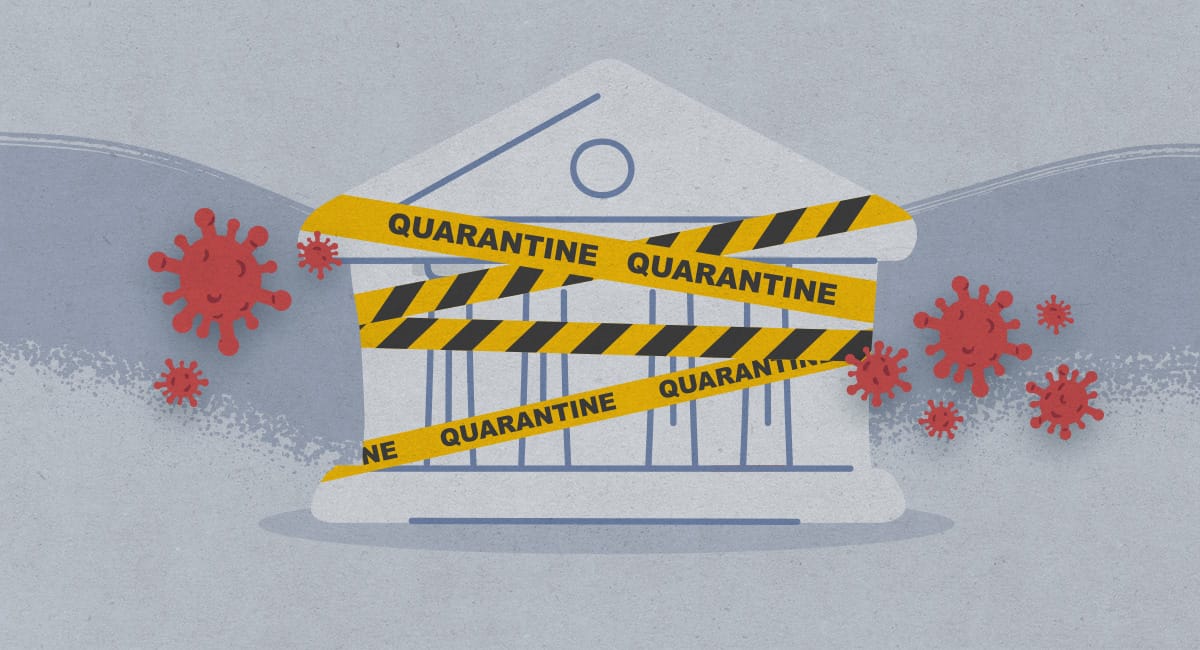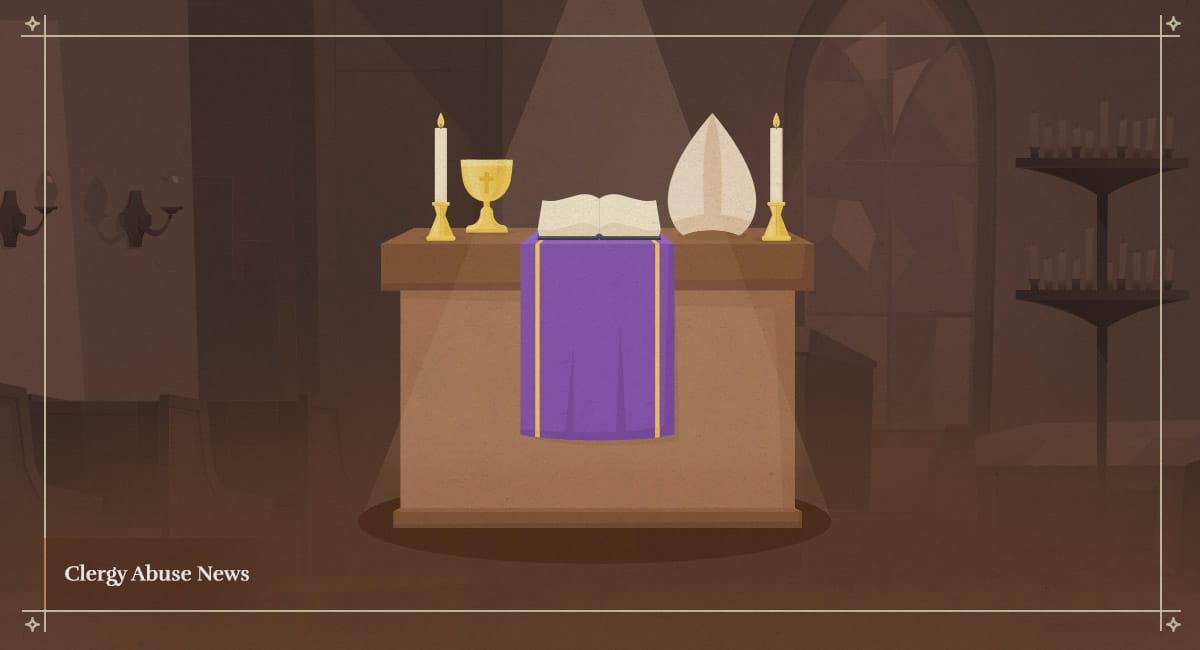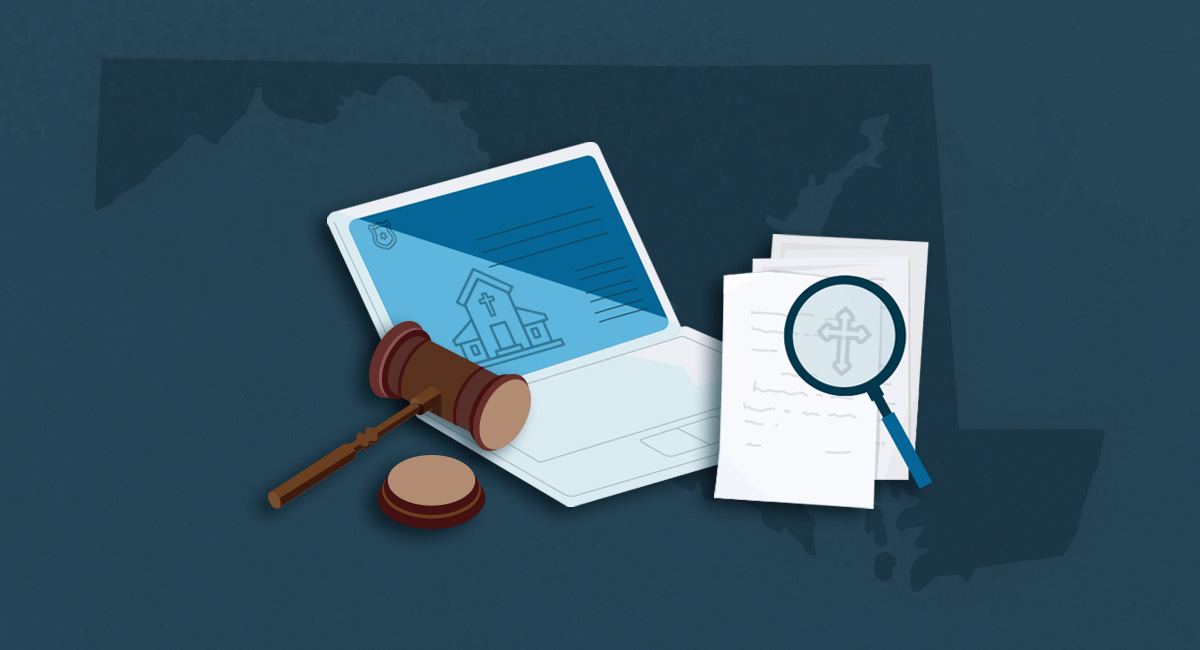How Coronavirus Is Affecting Catholic Dioceses’ Bankruptcies
The economic effects of COVID-19 are impacting Catholic dioceses facing sexual abuse claims. The pandemic may lead to more bankruptcies and affect proceedings.

COVID-19 has affected many businesses’ operations, including Catholic Church bankruptcies. The ongoing pandemic has created a domino effect of financial factors that negatively impact victims of clergy abuse.
How COVID-19 Affects The Catholic Church’s Revenue And Bankruptcies
COVID-19 restrictions mandate social distancing and have prohibited large gatherings. These restrictions forced churches to pause weekly masses and gatherings. For some Catholic dioceses, donations collected at mass are a significant revenue source. Thus, COVID-19 restrictions have caused financial losses for these dioceses.
More than 20 Catholic dioceses filed for bankruptcy before the pandemic. The financial strain of COVID-19 will likely push other Catholic dioceses into bankruptcy.
Archdiocese of New Orleans Declares Bankruptcy Amid COVID-19 Restrictions
The most recent casualty of the crisis is the Archdiocese of New Orleans. The archdiocese filed for bankruptcy on May 1, 2020. Archbishop Gregory Aymond explained the archdiocese had been considering bankruptcy for several months because of depleted revenue for operating expenses and mounting sexual abuse lawsuits. However, the economic hardship posed by COVID-19 cemented the decision to file for bankruptcy.
Although cities are slowly reopening, the economic fallout of COVID-19 restrictions persist. The Catholic Church will continue to deal with the pandemic’s financial effects. Multiple Catholic dioceses have filed for federal virus relief funds. It is clear many churches are bracing for greater long-term financial impacts.
Bankrupt Catholic Dioceses Seek Federal Coronavirus Relief Funds
In response to the economic hardships caused by COVID-19, many Catholic dioceses applied for emergency loan assistance under the Paycheck Protection Program (PPP).
The Paycheck Protection Program (PPP) is part of the $659 billion available for relief through the Coronavirus Aid, Relief, and Economic Security (CARES) Act. The bill provides short-term relief for small businesses, including churches, religious organizations and non-profit organizations financially affected by the pandemic.
The Diocesan Fiscal Management Conference, which provides professional services to Catholic Churches in the United States, compiled statistics on how many entities of the Catholic Church applied for assistance. The list showed 8,000 parishes, 1,400 elementary schools, 700 high schools, 104 chanceries, 185 Catholic Charities agencies and 200 other diocesan organizations in 160 dioceses applied for assistance. The federal loans provided by the PPP are not available to applicants currently in bankruptcy. So, dioceses currently involved in bankruptcy proceedings did not qualify.
Bankrupt Catholic Dioceses Denied Federal Assistance
One bankrupt diocese denied access to federal relief is the Archdiocese of Santa Fe. The Archdiocese of Santa Fe is New Mexico’s largest Catholic diocese. The archdiocese filed for bankruptcy in 2018 when faced with multiple clergy sexual abuse cases. In response to its denial, the diocese filed a complaint against the Small Business Administration (SBA).
Similarly, two bankrupt dioceses in New York — the Dioceses of Rochester and Buffalo — filed federal lawsuits against the SBA on April 15, 2020. The lawsuits claim the SBA’s exclusion of bankrupt debtors from the federal relief program violates the bankruptcy code. The Buffalo Diocese was denied its application of a $1.7 million loan. The Rochester Diocese was ineligible for $1.1 million. If denied relief, the dioceses claim they “will suffer immediate and irreparable harm.” The dioceses may be forced to lay off many essential employees to survive the economic strain of the pandemic.
How Victims Of Clergy Sexual Abuse Are Affected By Dioceses Denied Federal Funding
As dioceses file for bankruptcy, victims of clergy abuse may feel the economic fallout. Some victims will be impacted as new dioceses file for bankruptcy due to the financial effects of pandemic restrictions. Other victims may feel the impact if bankrupt dioceses are forced to lay off workers. This could directly and permanently affect some dioceses’ existing plans for restructuring. It could also negatively affect the process of settling outstanding sexual abuse claims.
How COVID-19 Affects Victim Compensation Funds
Dioceses with victim compensation funds have also felt the economic effects of COVID-19. The Erie Diocese suspended its settlement program as a result of the pandemic’s “economic turmoil.”
The Erie Diocese began an Independent Survivors’ Reparation Program in February 2019. The program compensated victims of priest abuse. Before the end of the year, the diocese had paid almost $12 million to abuse victims. Nearly $6 million came from the program.
By March 2020, approximately 40 of the cases were not completely processed. At that time, the coronavirus started affecting church operations. The diocese experienced a decline in revenue as pandemic restrictions went into effect. As a result, the diocese suspended the Reparation program. A co-administrator of the fund described the suspension of the program as “a temporary precautionary measure.”
However, a representative of the Survivors Network of those Abused by Priests (SNAP) — a victim advocacy group — viewed the suspension as “a hurtful and deceitful” move. The SNAP representative says the move shows the benefits of seeking justice through the court system.
Sources
- 1
Conlin, M. (2020, April 11). Empty pews, empty collection baskets: coronavirus hits U.S. church finances. Reuters.
- 2
Gjelten, T. (2020, March 26). Diocese Suspends Abuse Victims’ Compensation Program, Citing ‘Economic Turmoil.’ NPR.
- 3
Hadro, M. (2020, April 22). Bankrupt dioceses sue SBA for payroll loan access. Catholic News Agency.
- 4
Haywood, Phaedra. (2020, April 24). Archdiocese of Santa Fe files complaint over loan eligibility. Santa Fe New Mexican.
- 5
McGill, K. (2020, May 1). Archdiocese files for bankruptcy amid clergy abuse costs. Associated Press.
- 6
Sadowski, D. (2020, April 24). 20% of church entities that applied received SBA loans to keep staff. National Catholic Reporter.
- 7
Simerman, J. (2020, May 2). How Archdiocese of New Orleans’ bankruptcy might impact clergy abuse case settlements. NOLA.com.
- 8
Vargas, R.A. (2020, May 1). Archdiocese: Bankruptcy filing for good of church, victims and survivors; abuse claimants skeptical. NOLA.com.



